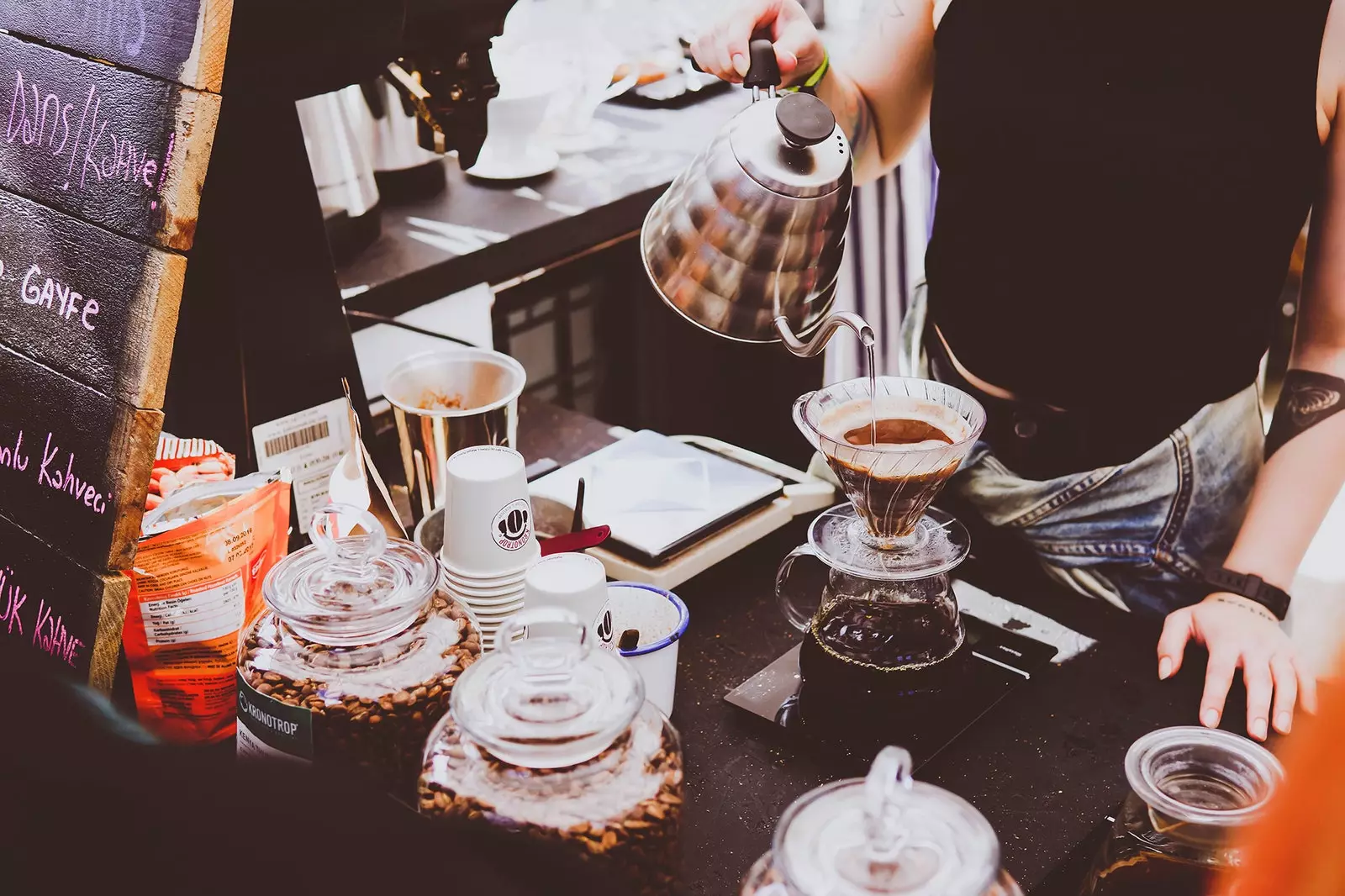
Goodbye short coffee and espresso: it's filter time
two ways to brew coffee which are actually two forms of understand life : on one side the coffee short, express and bitter of so many Spanish cafeterias whose absolute monopoly is based on two technological revolutions and a reason as simple as it is overwhelming (the rush).
The first great conquest is Alfonso Bialetti's Moka, guilty of ‘an espresso in each house’ and also to convey the aggressiveness of Marinetti's futurism: "we want to sing the love of danger, the habit of energy and recklessness", coffee as fuel, that coal we need to burn life.
The second great conquest, of course, is the Nespresso of capsules born in 1986 a little guilty of this liquid modernity that does not stain, does not weigh and is hardly: a coffee as fast as it is aseptic, a coffee without ritual.
In the other side, filter coffee , a slower elaboration ( droplet by droplet ) at the antipodes of the aggressiveness and rush of the express; a procedure bordering on ritual that gives us a clean, clear and smooth coffee.
"99.9% of specialty coffee professionals consume it in filter", I am surprised by the emphatic statement of Ana Cobo and Enrique Munoz (creators of Don Gallo Café, artisan roasters) but if you think about it it makes all the sense in the world.
"It's because the organoleptic characteristics in filter are more evident , the espresso is a solution for speed but the pressure negatively affects the characteristics of the drink: however in filter, po r the coarsest grind and the longest infusion both positive and negative nuances of coffee are enhanced (precisely for this reason they must be exceptional)”.
they call it slow coffee and I second the whys: the filter coffee is synonymous with a longer drink, to appreciate (and feel) every moment of the ritual and be aware of every step , of each aroma, of each wonderful sensation of that alchemy that is the process from the grinding to the hundreds of aromatic nuances in the cup.
It cannot be by chance that in Switzerland or Norway the culture of drinking is so diametrically opposed to shot : Huge cups and much lighter coffees than we are used to. It is not a coffee for stressed people but for long walks in the woods or enjoy a good book under a woolen blanket in front of the fireplace.
I, what do you want me to tell you, every time I enjoy more this way of understand the coffee shop : haste kills, as the master **Paco Félix from La Herrería in Sanlúcar de Barrameda ** (Cádiz, always so far from modernity: fortunately) used to sing.
“In the Nordic countries”, they tell us from Don Gallo, “ they have the Fikka culture , which is like our lunch but with filtered coffee ; the knowledge of specialty coffee it is much more advanced and that is why they bet on lighter roasts: a darker roast (which we are used to, blacker and more bitter) enhances the body of the coffee and it also hides grain defects.”
In other words, light roast means more notes of flowers and fruits but also more nudity , for better and for worse, before the barista or the machine. Coffee without makeup. no trick coffee . Darker roasting translates into more bitter notes and more organoleptic opacity (that's why it better withstands the mediocrity of a poor coffee machine) and that's why it also becomes clear that the essential thing for a good filtered coffee is a bean with exceptional characteristics with a suitable roast profile.
I also talk to the guys at one of our favorite specialty coffee shops in Madrid, Hola Coffee: “To begin with, we call filter coffee not only to the result of the Chemex but to everything that is not done with a pressure machine and therefore the final result is a much more diluted drink in water and not as concentrated as the espresso so familiar in southern Europe”, It is a coffee that in Spain has not always been valued and hence the 'aguachirri' ; and that "it can be made completely manually at home or with automated machines such as the Melitta or the Moccamaster ”.
But let's get practical: what difference does it make for the consumer? To begin with, “a fundamental detail for us (almost all of the Hola Coffee staff drinks filter coffee): you discover more flavors and it is more pleasant, Perhaps what we could best compare it with in our tradition is the 'pot coffee' , although the elaboration is different”.
They also point to the differences with northern Europe and the Anglo-Saxon culture, and that is that “ until the arrival of Starbucks the roasts were not so dark (they weren't toasted as much) and allowed cleaner notes, in the end the palate gets used to what it drinks every day”.
I have it clear, I want all the nuances of the world and enjoy every second of the ritual of this wonderful treasure that is coffee. Haste kills.
